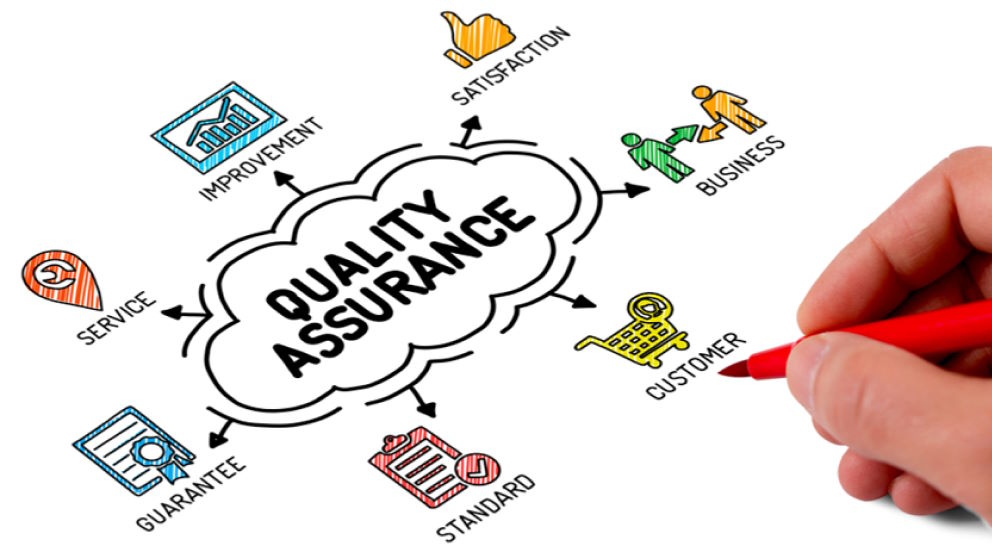Top Seven Benefits of Quality Assurance to Boost Your Business Quality

Content Map
More chaptersThe quality of any product or service comes from hard work, thorough research, and intelligent efforts. In today’s highly competitive business environment, quality is what distinguishes one business from another. If you want to stand out from the crowd, quality assurance is essential, especially in software development.
Quality assurance is a long-term investment. It is easy to lose patience during the process. Therefore, this article aims to remind you of the numerous major benefits of quality assurance and even uncover some new ones that you weren’t aware of along the way. Let’s dive straight in.
What Is Quality Assurance?

Let’s first recap what quality assurance is all about.
Definition
Quality assurance, or QA for short, is a systematic process of activities and components of quality management adhering to established requirements for the development or production of reliable products or services. Its aim is to increase customer trust and a company’s credibility and improve work processes and productivity while effectively competing with its competitors.
In the specific context of software development, the focus is to ensure the proper functioning of the development process. By verifying each stage of the process, quality assurance guarantees that the final product meets the customer’s demands. According to a definition by Google Testing Blog, it is “about providing the continuous and consistent improvement and maintenance of process that enables the QC [quality control] job.”
Quality assurance (QA) focuses on detecting any errors early on in the software development process, preventing any significant issues, and keeping the product trustworthy.
Examples of Expensive Mistakes
It is human to make errors. However, sometimes, those errors can cost up to millions of dollars in a matter of minutes. In order to better visualize the dire consequences brought about by poor quality assurance, below are some of the most expensive software mistakes.
A bug in Knight Group’s Capital System is the first example we would like to talk about. A software error in Knight Capital Group’s system caused approximately 150 stocks to trade irregularly in August 2012, resulting in a loss of roughly $440 million in a mere 30 minutes. This figure does not include the additional losses incurred when the company’s shares decreased by 75% over the course of the following two days.
A little missing hyphen in the coding is another million-dollar error that sent a spacecraft off track and ultimately into destruction. In 1962, the Mainer 1 Spacecraft was destroyed before it even reached orbit, resulting in a $18.5 million loss.
Here are these examples. It is safe to say that the quality assurance process in software development is crucial.
Factors to Focus on During the Quality Assurance Process

In the specific case of assessing the quality of software, there are a few key aspects that a quality assurance team focuses on.
- Functionality: This refers to the software’s functionality, whether it is suitable and developed correctly, whether the data can be safely processed, whether compliance with relevant laws and regulations, and whether the relationship between the software and other components of the system has been taken into consideration.
- Reliability: Should any unexpected bug happen, how long would it take before the application is up and running again?
- Usability: Another part of the quality assurance team is to check whether the software is user-friendly.
- Efficiency: Efficiency is one of the top priorities of any software, so the team needs to make sure it is reflected well in the structure of the application.
- Performance: The software needs to perform smoothly with no conflicts between the components to ensure quality.
- Load Test: While placed under a simulated “pressure” or “demand” on your web application by the quality assurance team, the software should remain stable while in use.
Seven Benefits of Quality Assurance
Quality assurance plays a key role in maintaining a company’s reputation and keeping a product trustworthy. Maintaining the quality standard enables your business to reap the many attractive advantages that help it stay ahead of the curve.
Less Maintenance Cost
Thorough testing during the development process of new releases and patches cuts down maintenance significantly. Not only does a well-crafted quality assurance plan save money, but it also makes the maintenance process that follows easier and more manageable as most of the bugs have been found or the shortfalls have been anticipated.
Reduces Time to Market
First impressions are everything. They are long-lasting. In some cases, they even make or break opportunities. For this very reason, if you are working on a new product, developing a strong quality management system increases the chances that the product will work as intended. The market has become ultra-competitive, which is why you need to win your customer’s confidence from the very beginning. This means a well-thought-out quality assurance program to guarantee everything is running smoothly: All the functions, usability, performance, and integration are seamless from start to finish.
Collaboration between your QA and QC teams throughout the software development lifecycle ensures that the product is released as quickly as possible once it is fully prepared. If you wait until the very end to carry out the software testing, it will cost you much more time and money to identify the problems and resolve them.
Enhance Customer Satisfaction
After nailing that first impression, your next goal is to maintain and consistently meet customer expectations. This is when you need to prove that the product is stable and reliable.
How do you achieve this goal? The answer, of course, is by carrying out thorough software quality assurance tests. To be specific, set clear quality objectives, define quality standards, and implement quality control measures to set your software up for long-term success. You will enjoy a strong customer base that is confident in your services and products, who are willing to do repeat business, and even share their positive experience with others. Remember, at the core of a successful business is its customer satisfaction level.
Build Strong Reputation
The ability to develop and maintain a company’s reputation is one of the quality assurance advantages that we previously highlighted.
A quality assurance specialist not only examines the software’s functions, performance, and usability but also tests its reliability. Consistently providing a stable, high-quality, and reliable product, your business has established a positive brand image. Meet and exceed customer expectations; they will associate their positive experience with your company and will even gladly do word-of-mouth marketing (which is undoubtedly an underrated but powerful marketing tool). Having an established reputation earns your company a strong and loyal customer base, leading to a considerable competitive edge in the marketplace.
Better User Experience
Customer experience is also another factor taken into serious consideration by the QA team. Quality assurance focuses on meeting customer’s expectations as well as providing users with exceptional experience. This is more than just bugs-free or smooth-running software and this also includes a user-friendly interface, the website’s appearance, responsiveness, effectiveness, and accessibility. After all, a meaningful customer journey is crucial to a company’s success.
Uncover Weaknesses and Vulnerabilities
Problems occur in any software and can lead to unexpected system failures. Such issues are caused by a variety of factors, which is why you may have seen QA and QC teams meeting for extended periods of time to discuss specific codes.
Even when the software is operating as intended, it may still have security vulnerabilities. Cybersecurity has become a serious concern in recent years. Data breaches can have detrimental effects on the business and customer’s trust. This is another reason why the QA process is so crucial, as the team is also testing the software with security in mind.
Other weaknesses may also come to light, pushing the company as a whole for continuous improvement. Quality assurance services, in some cases, are extremely insightful as they help point out weaknesses and vulnerabilities that may have been overlooked by in-house departments.
Increase Safety of the Development Process
Quality assurance involves setting company quality standards and objectives, which leads to standardization. Established standards guarantee the consistency of the production process or process improvement of legacy systems to meet certain standards. There’s less room for mistakes.
This is especially true when it comes to safety measures. Any security vulnerabilities may lead to devastating consequences, which is why the aim of quality assurance is to eliminate any mistakes or architectural flaws. At the start of the article, we have provided examples of costly errors to illustrate how costly one seemingly minor error can quickly become. Those mistakes might even be long-lasting, which is why the QA team in any company plays a significant role in maintaining its quality standards while also pushing the company forward.
Why Outsourcing QA Teams Is a Great Idea

Quality assurance is undoubtedly essential. It is surely a long-term investment. Nonetheless, it is time-consuming to build a strong and efficient quality assurance team. If you have yet to build one QA team for your business, now is the time.
If you, however, want to have immediate access to extensive experience, obtain fast results at a lower cost, and keep your customers happy, outsourcing quality assurance services is made for you. Even better, the Orient Software team is ready to deliver you the proven best practices. Contact us today and quickly level up your quality assurance game.







